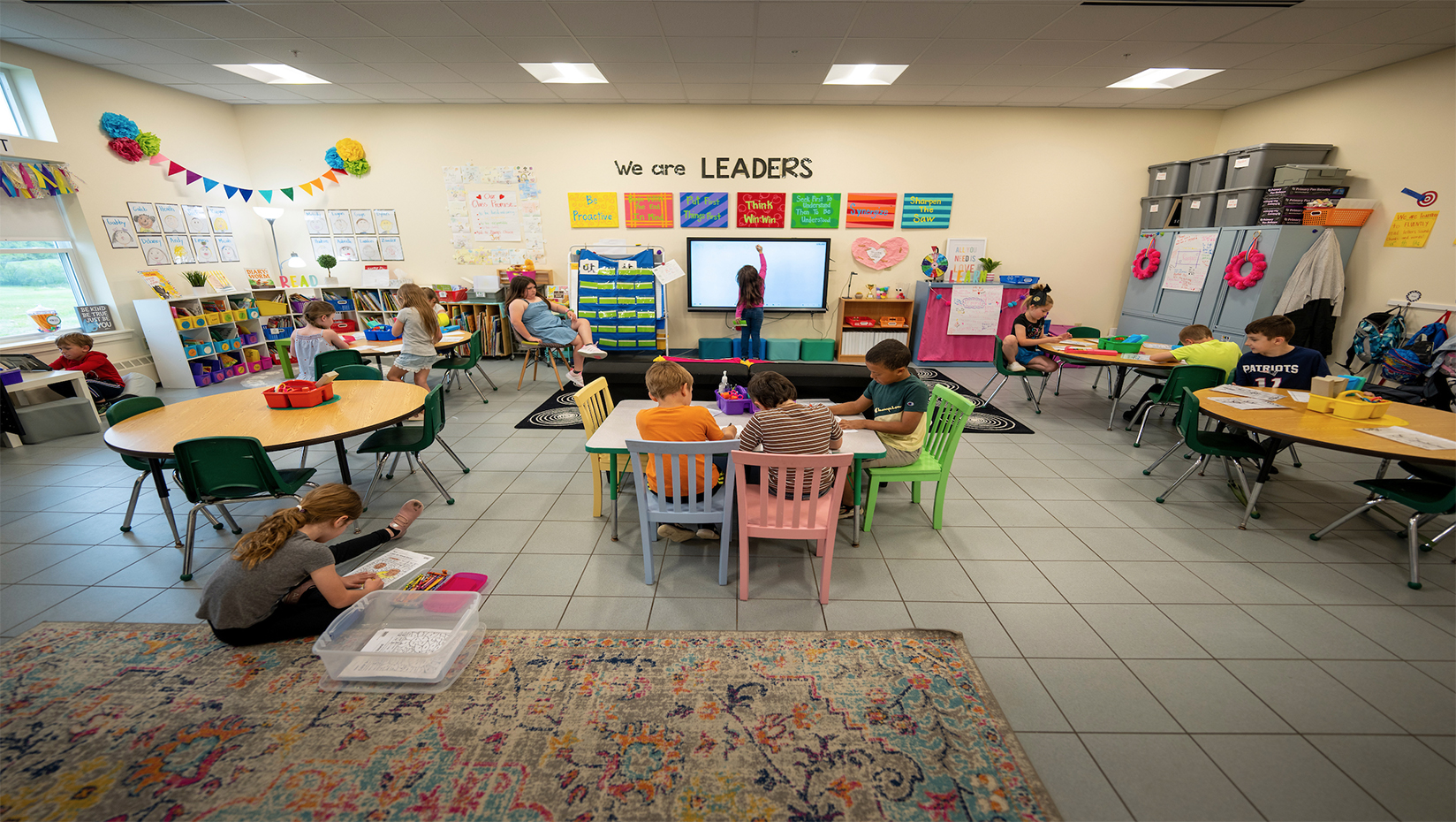
Graduate students who are also K-12 leaders aim to improve leadership retention in Maine’s rural schools
Two leaders in Maine’s public education system have gone back to school at the University of Maine to explore how superintendents, schools and communities can better support and retain principals.
Schools are indispensable to their communities, especially in rural areas where they provide services and offer facilities to all ages that would otherwise be unavailable. The stability and quality of a school affects its community’s ability to attract workers and shapes the educational experience of Maine’s future workforce. Students, teachers and staff need strong, stable school leaders to thrive.
Many rural schools statewide are struggling to retain leadership. According to the 2011 Maine Principal study, Maine has struggled with high rates of principal turnover since the 1990s.
Two UMaine Educational Leadership graduate students, Nicole Hatch and Ben Greenlaw, are investigating these challenges. Both are advised by assistant professor of educational leadership Esther Enright from the College of Education and Human Development.
They are building on prior research led by UMaine’s educational leadership faculty and students. Bill Tracy, a 2023 graduate of the UMaine Educational Leadership doctoral program, studied this problem and found key supports Maine principals need to stay in their positions, including supportive superintendent-principal relationships and professional networks.
Hatch currently serves as one of two assistant principals at Oceanside High School in Midcoast Maine’s Regional School Unit (RSU) 13 based in Rockland. Born and raised in the area surrounded by extended family, Hatch returned to RSU 13 after working at a number of surrounding schools as a counselor. Her research investigates how to best support school leaders as they navigate their small communities and balance their roles as a school leader, member of the community, neighbor and family member.
Hatch’s interest in helping principals feel more connected is directly influenced by her experience as a school leader and longtime community member.
“Getting to work in the community you live in allows you to engage with your students and their families in a variety of ways, whether it is running into them at the store or sitting alongside them as a parent cheering on a team,” Hatch said. “There are times where these types of dual relationships can be complicated, but there is also a level of trust that comes with them that is hard to describe.”
Through interviews, Hatch wants to explore how education leaders in Maine’s small communities are balancing their personal and professional lives. By understanding how others successfully maneuver these spaces in their role, Hatch can identify throughlines in their experiences and approaches that may benefit other leaders as they serve in these roles.
Greenlaw is looking at the relationships between school leaders, specifically superintendents and principals. A native of Lincoln, Maine, Greenlaw taught at Hampden Academy before moving to Presque Isle where he served as both an assistant principal and principal. He is now the superintendent of Schools for Maine School Administrative District (MSAD) 1, which is primarily located in Presque Isle.
“The relationship that a principal has with the superintendent is a key component in the retention and the job satisfaction of principals,” said Greenlaw. “From my own experience as an assistant principal and principal, I remember how important my relationship was with that superintendent.”
Principals are pulled in every direction by the students, teachers, community and their superintendent. In Greenlaw’s preliminary work, he found that there are three main things principals are looking for: trust, support and communication. However, what form that takes differs from principal to principal based on their unique experiences. Building on Tracy’s earlier research, Greenlaw is interviewing superintendents and principals about what makes their relationship work or not work in order to better understand how principals can best be supported.
“Principals are kind of putting out fires all the time. If you’re always putting out fires in your building, and you’re dealing with an upset staff member or student issue it is really hard to move your whole school forward, and to be thinking about the vision and the direction of your school as a whole. I think superintendents who have effective relationships with their principals can help principals work through their everyday problems and keep an eye on the future,” said Greenlaw.
Losing a leader in a school district can quickly have a domino effect in rural communities. Hatch and Greenlaw’s respective research projects will enhance understanding of these complex roles and ultimately help Maine’s communities better retain leadership. As a predominantly rural state, addressing retention amongst school leadership is critical to the health of the state’s education system and can serve as an example for other rural communities.
Contact: Daniel Timmermann, daniel.timmermann@maine.edu
